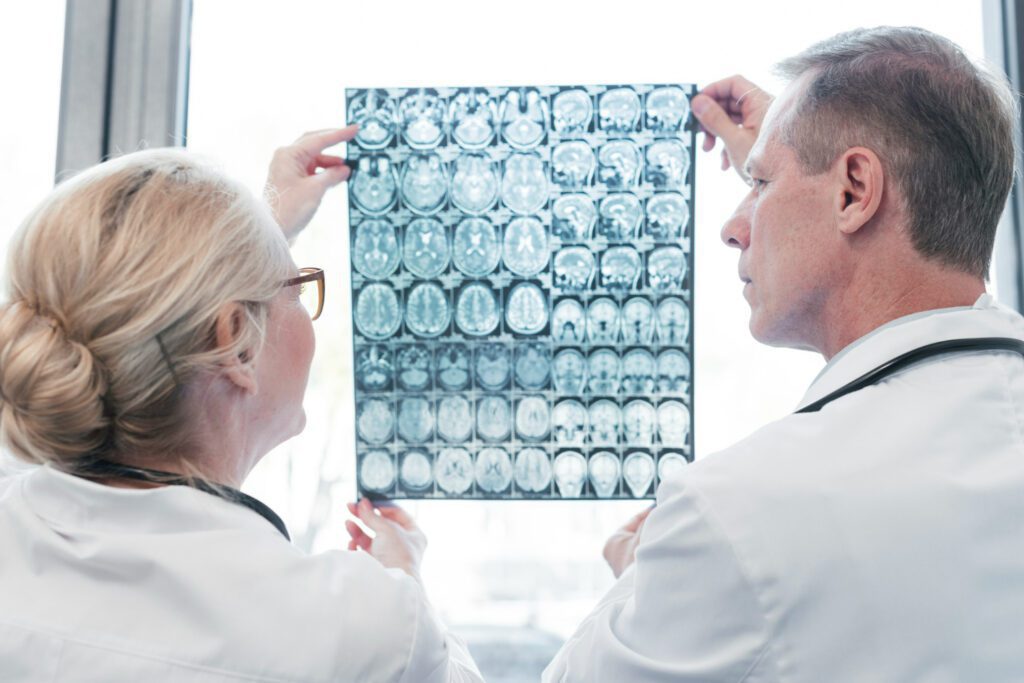The Alzheimer’s Association found that 6.2 million Americans 65 and older had Alzheimer’s, with the number anticipated to climb. The National Institute on Aging found that Alzheimer’s damages memory and cognitive functioning, affecting everyday living and quality of life.
Alzheimer’s affects the elderly beyond cognition. It also harms them physically. Alzheimer’s patients are more likely to suffer cardiovascular and mobility concerns. Family and caregivers must provide long-term care and support as the condition progresses.
Knowing how Alzheimer’s disease impacts elders’ mental and physical health, it’s important to investigate preventative strategies. Seniors may minimize their risk of Alzheimer’s and improve their brain health by changing their lifestyle.
We’ll discuss seven behaviors seniors may adopt to reduce their risk of Alzheimer’s disease in the following sections. These practices, supported by science and practice, may improve cognitive performance and well-being. These behaviors help seniors improve their mental health and quality of life.
We’ll explore how these practices might improve seniors’ lives. Let’s create a healthier and more vibrant elder community together.

Daily Exercise
Regular exercise improves seniors’ cardiovascular health, cerebral blood flow, neuroplasticity, inflammation, oxidative stress, mood, and mental well-being.
Brisk walking, swimming, and cycling strengthen the heart and increase blood flow to the brain. Increased blood flow delivers nutrients and oxygen to the brain, improving its health and function. Seniors may minimize their risk of Alzheimer’s by maintaining good cardiovascular health.
Physical activity releases brain growth hormones and substances that promote new neural connections and cognitive performance. BDNF, a molecule that helps neurons survive and thrive, improves memory, learning, and cognitive ability. Physical activity boosts neuroplasticity, which helps elders preserve cognitive function and lessen the risk of Alzheimer’s disease.
Exercise decreases oxidative stress and inflammation. It boosts antioxidant and anti-inflammatory production, which protect brain cells from free radicals. Exercise may lessen Alzheimer’s risk by decreasing inflammation and oxidative stress.
Regular exercise releases endorphins, which increase pleasure, relaxation, and well-being. Exercise reduces anxiety, sadness, and stress in seniors, improving mental health. Exercise boosts self-esteem, confidence, and quality of life. Group activities and fitness programs may improve seniors’ happiness and mental health by developing social connections and minimizing loneliness.
Brain Exercise
Seniors need mental stimulation and cognitive activity to keep their brains healthy and prevent Alzheimer’s disease. These exercises may help elders maintain cognitive function, increase memory, and decrease cognitive decline. Consider these factors while bringing mental stimulation and cognitive activities into everyday life:
Lifelong Learning
Lifelong learning keeps the brain alive and engaged. Seniors might enroll in classes, workshops, lectures, seminars, or mental-challenge hobbies. Learning new things stimulates the brain, builds neural connections, and improves cognition. Reading varied literature, researching internet resources, or talking to people with different viewpoints can do it.
Puzzles, Games, and Reading: Brain-Testing
Cognition requires brain-challenging tasks. Crosswords, Sudoku, and jigsaw puzzles demand problem-solving, pattern identification, and reasoning. Strategic board games and brain-training games boost memory, attention, and executive skills. Reading develops information, opens the mind, and improves language abilities. Reading fiction, non-fiction, or other genres improves cognitive agility.
Socializing and Thinking
Social involvement boosts cognitive and emotional wellness. Socializing encourages fascinating talks, debates, and intellectual exchanges. Seniors may join reading clubs, discussion groups, and intellectual community activities. Interactions challenge the brain, foster critical thinking, and extend viewpoints. Meaningful discussions stimulate and preserve cognitive talents.
Meditation & Mindfulness
Mindfulness and meditation improve brain health and cognition. Mindfulness is focusing on the present without judgment. It increases attentiveness, reduces tension, and boosts cognitive function. Focused breathing and loving-kindness meditation enhance concentration, memory, and emotional control, relax, and raise self-awareness. These habits boost brainpower.
Brain-Healthy Nutrition
Prioritize a Mediterranean diet rich in fruits and vegetables. These bright foods are full of vitamins, minerals, and antioxidants that boost brain health and prevent cognitive loss. Blueberries, spinach, kale, broccoli, oranges, and strawberries are packed with brain-boosting chemicals.
Omega-3 fatty acids and antioxidants are brain fuel. At least twice a week, eating fatty fish like salmon, mackerel, and trout gives a large dosage of omega-3 fatty acids, which boost brain function and decrease cognitive decline. Flax, chia, and walnuts are plant-based sources. Omega-3-rich salads, yogurts, and smoothies may include these items. Prioritize antioxidant-rich foods like blueberries, strawberries, raspberries, dark chocolate, kale, spinach, and bright vegetables like beets and red cabbage.
Limit processed and saturated fats for brain health. Prefer complete, unprocessed meals. Fill your plate with fresh produce, lean meats like chicken, fish, and lentils, nutritious grains, and low-fat dairy. Avoid processed snacks, sugary drinks, and high-fat meals including fatty meats, full-fat dairy, and fried items. When cravings hit, consider nuts, seeds, or fresh fruits.
Cook using brain-boosting herbs and spices. Anti-inflammatory and antioxidant turmeric contains curcumin. Use turmeric in curries, stir-fries, and roasted vegetables. Roasted veggies, poultry, and potatoes taste great with rosemary, which boosts cognition. Sage is great in stuffing, chicken seasoning, and sauces since it may improve memory and cognition. Cinnamon, which improves attention and memory, may be added to cereal, smoothies, or roasted sweet potatoes.
Roast salmon with lemon and dill for a brain-healthy lunch. Pre-heat your oven to 400°F (200°C) and line a baking sheet with parchment paper. Salt and pepper salmon fillets on the baking sheet. Mix olive oil, fresh lemon juice, minced garlic, and dill in a small bowl. Cover the salmon fillets with this mixture. Lemon slices on each fillet boost taste and appearance. Roast the fish in the preheated oven until it flakes easily. Rest the salmon before serving. This recipe makes a full brain-healthy supper with steamed veggies or a salad.
Conscious food choices are essential for a brain-healthy diet. Here are some helpful tips to get started:
- Eat mostly complete, unprocessed meals. Choose fresh produce, nutritious grains, lean proteins like fish, chicken, lentils, and nuts, and low-fat dairy. These foods include brain-healthy nutrients, fiber, and antioxidants.
- Eat plenty of colorful fruits and veggies. Include leafy greens, berries, citrus, cruciferous veggies like broccoli and cauliflower, and colorful vegetables like beets and carrots. Vitamins, minerals, and antioxidants in these meals boost brain function and health.
- Brain health requires healthy lipids. Omega-3 fatty acids from salmon, trout, and sardines increase cognitive function and minimize the risk of cognitive decline. Avocados, almonds, seeds, and extra-virgin olive oil provide healthful fats.
- Limit processed and added sugars. These foods may cause brain-damaging inflammation and oxidative stress due to nutritional deficiencies. Limit processed food, sugary drinks, and sweets and concentrate on fruit sugars.
Remember to stay hydrated throughout the day, it’s very important! See a healthcare provider or certified dietitian if you have dietary concerns or health issues. They can customize a diet for you.
Restful Sleep
Consistent sleep is essential for brain health and cognitive decline. Going to bed and getting up at the same time every day regulates your body’s internal clock, improving sleep and well-being.
Make your bedroom serene, cozy, and sleep-friendly. Use earplugs, eye masks, or white noise generators to block out distractions. A supportive mattress and pillows may help improve sleep.
Relaxation exercises might help you fall asleep. Before night, practice deep breathing, gradual muscular relaxation, meditation, or moderate stretching. These methods help soothe, relax, and enhance sleep.
Napping helps memory consolidation and cognitive performance. Daytime naps of 20–30 minutes improve alertness, concentration, and productivity. However, extended naps or resting close to bedtime might disrupt evening sleep.
Brain health and well-being depend on a sleep regimen. A good sleep regimen is:
- First, set a regular bedtime and wakeup time. This maintains your body’s internal schedule and sleep-wake cycle. Sleep 7-9 hours every night to be refreshed.
- Create a peaceful sleep routine to tell your body to relax. Take a warm bath, read a book, stretch, or listen to relaxing music. Avoid stimulants, bright screens, and large meals before night.
- Make your bedroom relaxing. Cool, dark, and silent your bedroom. Use drapes or blinds to prevent light, earplugs or white noise generators to block noise, and comfortable bedding and a firm mattress. Avoid stimulating light by removing electronics from the bedroom or using a blue light filter.
- Caffeine and nicotine may disrupt sleep, particularly before bedtime. Napping, particularly in the afternoon or evening, may impair your nighttime sleep. Naps should be 20–30 minutes and early in the day.
- Relaxation exercises before bedtime improve sleep. Before bed, try gradual muscular relaxation, deep breathing, meditation, or moderate stretching. Make your preferred methods a habit.
- Avoid screens before night by making your bedroom tech-free. Avoid using phones, tablets, and computers before bed. These gadgets produce blue light, which disrupts melatonin synthesis.
Stress management during the day improves sleep. Exercise, mindfulness meditation, writing, and nature may alleviate stress.
Stress Reduction and Mental Health
Modern life is more stressful, affecting physical and mental health. Reducing stress is essential for mental wellness. Stress may be managed and well-being improved by engaging in stress-reducing activities, building strong connections, obtaining professional assistance, and laughing.
Meditation and yoga reduce stress. These behaviors help people relax and manage stress. Meditation and yoga lower stress hormones and increase emotional well-being.
Positive connections and social support reduce stress and improve mental health. Family, friends, and community connections give emotional support, a feeling of belonging, and shared experiences. Meaningful interactions and helpful people may reduce stress and bring comfort during difficult times.
Professional treatment is necessary for persistent stress. Therapists and counselors may help manage stress and anxiety using evidence-based methods. They may help people cope, detect stressors, and express emotions. Professional assistance is a proactive step toward mental well-being and self-care.
Laughter therapy helps reduce stress and improve mental health. Laughter reduces stress and improves well-being. It releases endorphins, which calm and alleviate tension. Watching a comedy program, telling jokes, or doing laughing yoga may reduce stress and improve mental wellness.
YOU SHOULD ALSO CHECK OUT: 7 Easy Steps to Prioritize Your Mental Health in Retirement
Social Activity
Social involvement helps prevent Alzheimer’s and preserve cognitive function. Social engagement and meaningful relationships may improve well-being and cognition. Social engagement techniques are here.
Participating in neighborhood events and group activities keeps you socially active. These include local festivals, interest groups, gym programs, and group trips. These events allow individuals to meet, discuss, and feel connected to the community.
Family and friends are vital for emotional and cognitive wellness. Family gatherings, shared meals, and leisure activities with loved ones build connection, support, and belonging. Close connections boost pleasure and cognition.
Volunteering or joining interest-based groups helps preserve social relationships and provides personal development and enjoyment. Volunteering lets people support their causes, meet like-minded people, and feel fulfilled. Joining groups relating to hobbies or interests allows for social connection, learning, and engaging activities.
Intergenerational activities build bridges between generations. Mentoring, youth organization volunteering, and intergenerational community projects foster cross-generational learning, understanding, and lasting relationships. It builds community and enriches social life.
Active social engagement may be achieved through volunteering, joining groups, keeping strong social links, and exploring intergenerational activities. Regular social connection improves cognitive health and reduces the risk of Alzheimer’s disease by providing cognitive stimulation, emotional support, and purpose. Social interaction enhances elders’ lives and well-being.

Brain and Medical Checkups
Medical checkups and brain health screenings help preserve health and spot cognitive disorders early. According to medical research, these evaluations detect risk factors, monitor brain health, and enable early treatments. The Alzheimer’s Association and National Institute on Aging studied how regular medical checkups affect cognitive health.
The five-year JAMA research studied a large sample of 65-year-olds. If needed, regular medical checkups included cardiovascular risk factor evaluations, cognitive testing, and brain imaging. The research examined whether medical checkups and complete evaluations affected cognitive performance and Alzheimer’s disease.
Regular medical checkups and brain health screenings greatly reduced the risk of cognitive decline and Alzheimer’s disease. The research stressed the necessity of monitoring cardiovascular risk factors, including blood pressure, cholesterol, and hyperglycemia, and early identification using cognitive assessments and brain imaging.
Based on these findings, the research prioritized early treatments. Lifestyle changes, medication management, and specialist referrals were given to those with cognitive impairment or dementia risk factors. These therapies slowed cognitive decline and improved brain health.
The research highlights the necessity of frequent medical checkups and brain health screenings for cognitive wellness. Individuals may safeguard and improve their brain health by monitoring cardiovascular risk factors, talking to doctors, getting suggested tests, and understanding brain imaging.














